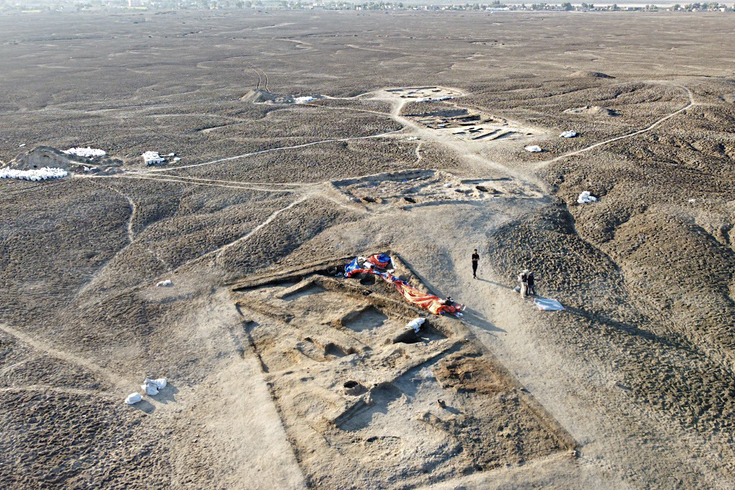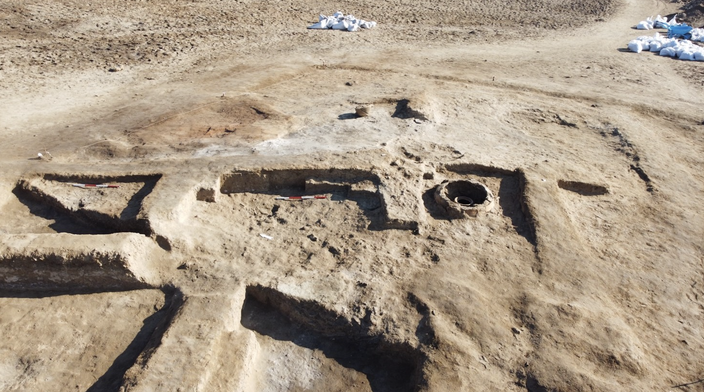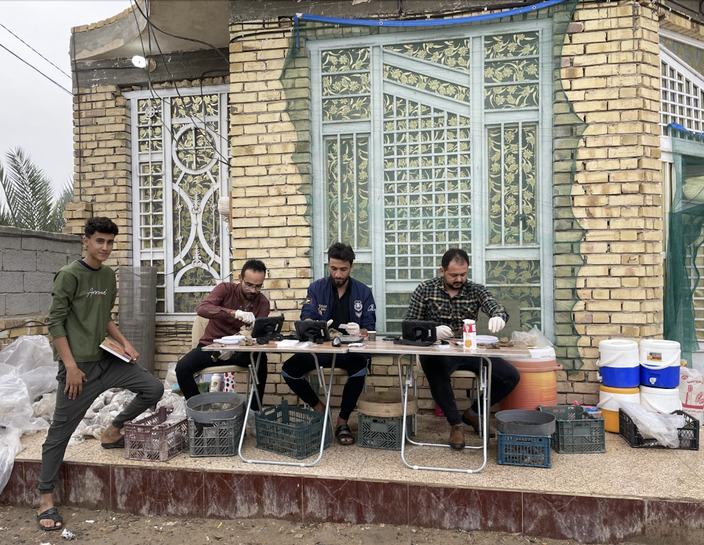
February 08, 2023
 Provided Image/Lagash Archaeology Project
Provided Image/Lagash Archaeology Project
Penn Museum researchers have uncovered an ancient restaurant and tavern with a 5,000-year-old refrigerator in southern Iraq. The findings are from the ancient Mesopotamian city of Lagash, located in modern Al-Hiba.
Archaeologists from the Penn Museum have discovered an ancient restaurant and tavern hidden just beneath the surface in southern Iraq, as well as a refrigerator that dates back nearly 5,000 years.
The findings have been traced to the ancient city of Lagash, the subject of a years-long research project by archaeologists at Penn Museum and the University of Pisa. Located in what is considered modern Al-Hiba, Lagash was one of the oldest and largest cities in southern Mesopotamia during the third millennium, from 3,000 to 2,001 BCE. The major population center was focused on agriculture, surrounded by marshes and equipped with resources like fish, netting, reeds and birds.
This particular tavern dates back to about 2,700 BCE, and included an open-air dining space and partial kitchen with an oven and fridge. Researchers found that the establishment had outdoor seating with benches and uncovered the remains of old food, providing the team with some additional context on the people who may have frequented the space — the "historically overlooked" middle class which previously thrived in the city.
Rather than digging vertically into the sand and dirt-covered area, the team used what they call a phased excavation approach, digging horizontally and sifting layer by layer until they uncovered the tavern only 19 inches under the surface. Dr. Holly Pittman, director of the Lagash Archaeological Project and curator of Penn Museum's Near East section, said that recovering the 5,000-year-old tavern so close to the surface is "remarkable."
The remains of this 5,000-year-old refrigerator were found just 19 inches beneath the surface at the excavation site. The team also found the remains of a partial kitchen, benches, and open-air dining area and some old food.
The project is expanding on previous research on the area, which Pittman believes is outdated because it focuses only on elite or enslaved people who lived in the area. In her view, residents of Lagash were largely independent people thriving in urban neighborhoods.
"Probably what we have — and especially in an environment as precarious as southern Mesopotamia — is that you have a broad band of people we might consider 'middle class' during the 3rd millennium," Pittman said. "They had agency; they made decisions. They didn't have wealth necessarily, but they were largely independent and had mobility."
This excavation is the fourth Pittman and the international team of researchers have undertaken at the ancient site. In particular, the team is hoping to discover what role craft production played in Lagash's economic success.
Since the project began in 2019, researchers have found two houses, roads, alleyways, countless pottery pieces and several ceramic kilns that have remained intact for thousands of years. Archaeologists have used technology like remote sensing and drone photography to see beneath the surface and select areas they believe will help them answer specific research questions.
Penn Museum has employed residents of Al-Hiba and archaeology students from the University of Pisa to assist in the excavation and documentation of artifacts uncovered during the dig. The team hopes to bring three Iraqi students onto the project in the future.
As part of its outreach, the Lagash Archaeological Project works with nearby residents in Al-Shatrah, located near the ancient site, and employs them during excavations. Researchers teach schoolchildren about archaeology, explaining what the excavated materials found in the present tell them about the people who lived in the past.
The project's researchers are also training a group of aspiring archaeologists to use the technology they've utilized during the excavation. In the near future, Pittman's team hopes to bring on three Iraqi students to join the project.
Researchers from the Lagash Archaeological Project will present some of their findings during a lecture at Penn Museum on Wednesday, May 3 from 6 to 7:30 p.m. Tickets to the in-person or online lecture are available to purchase now, from $5 to $15.
 Provided Image/Lagash Archaeology Project
Provided Image/Lagash Archaeology Project Provided Image/Lagash Archaeology Project
Provided Image/Lagash Archaeology Project